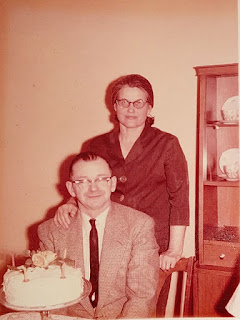My sweet grandma Alice always told me to wear clean underwear everyday in case I got in an accident. She thought it was important to be proper and clean even in an emergency.
In emergency situations people do not act like they normally would and our emergency workers understand that and are trained for panicking people.
Yet, there are times that people are not in that “life or death” situation and instead of being thankful and respectful to those who have come to help them, they are rude and disrespectful.
The Rojas family lost their home to a fire caused by Hurricane Harvey. They are migrant workers who have worked for years to build a life in America.
So what is Emergency Etiquette? the customary code of polite behavior in emergency situation.
Here are a few guidelines that might help you weather the next disaster/emergency.
1. Watch the weather well in advance. Remember, weather forecasters are just that, forecasters. They canNOT tell us what a storm is going to do. Weathermen/women use their best computer programs and knowledge to make an educated forecast, but it is not guaranteed.
2. “They’ve said a hundred times a tornado is coming and it never has.” Don’t be one of those people who say that because they’ve been fine in the past they will be fine now. Each storm is different and could be the one to break the “I’ve been fine” record you may have.
3. Know where your shelters are located. Go talk to the people in charge of the shelter, before a disaster, to find out how many people they can hold and how long they can provide assistance before they run out of supplies. You may flee to a shelter only to find out they only have enough supplies for one week for 100 people. Then what will you do? What is your plan?
4. It is not the government’s responsibility to save you. Many American’s have this mentality that says the gov’t is supposed to bail them out of every problem. You are responsible for you so get educated. Get prepared. Do your part to stay safe. Once you’ve exhausted all your resources then turn to others for help. Don’t be the first one to say, “I didn’t know! We have no food! I don’t know what to do!”
5. We’ve always heard that we should have two weeks of food storage in case of an emergency. There is a list of items that we should have in a bucket at home and another bucket in out vehicle. For a list please go to http://www.thelemonadedigest.com and https://www.ready.gov/build-a-kit#
6. If you family is split up do you have a place to meet?
7. Do you have a weather radio? Extra batteries? Cell phone battery extenders?
8. When calling for non-emergency aid, please say please. Remember, you aren’t the only one needing help. There are many who do. Be patient and see what you can do to make it less stressful for those who are risking their life to save you.
9. Many people who go out to aid in rescue operations are volunteers. They are risking their life to save yours. It is not their fault you are trapped by a flood or other emergency. They have to make a plan to save you that will not put others in jeopardy. Most of these first responders are trained to assess a situation and implement a rescue plan. It helps them do their job if you aren’t panicking and being rude.
10. My son, daughter-in-law, and son-in-law are all some of the people who might save you. Keep my family safe, also. I want to see them and you tomorrow, after the emergency.
For more tips on emergency preparedness go to www.thelemonadedigest.com

